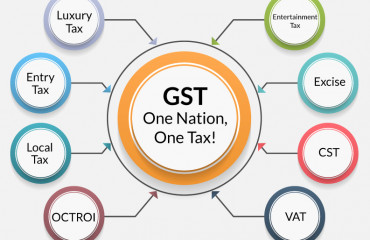
New Delhi: Gaming companies have been grappling with the swift changes in the newly imposed GST tax liability on them. In the Supreme Court, there are two cases, one for the new GST tax which the industry has been lobbying against and another which is opposing a retrospective tax liability on the GST. Amid this, one company that functions as a business unit of Baazi Games—SportsBaazi—said there could be a time when gaming companies would find it unsustainable to not be able to pass on the tax burden to the consumer. For now, their business, the company’s co-founders, Saurabh Chopra and Puneet Dua, said has had to pivot the business model to creating additional revenue streams, to mitigate the impact.
New Delhi: Gaming companies have been grappling with the swift changes in the newly imposed GST tax liability on them. In the Supreme Court, there are two cases, one for the new GST tax which the industry has been lobbying against and another which is opposing a retrospective tax liability on the GST. Amid this, one company that functions as a business unit of Baazi Games—SportsBaazi—said there could be a time when gaming companies would find it unsustainable to not be able to pass on the tax burden to the consumer. For now, their business, the company's co-founders, Saurabh Chopra and Puneet Dua, said has had to pivot the business model to creating additional revenue streams, to mitigate the impact.
"The GST hike hasn't helped the industry but because we have been growing, our growth has sustained the business. We have not passed on the tax liability yet and the impact on the consumer is minimal. But the business needs to make sense and we do plan to pass on the tax burden to the customers and optimise it gradually and do it in a fashion that the consumer engagement is not impacted," said Chopra.
He said they are optimistic that there could be a positive resolution for businesses here.
Baazi Games is an umbrella company and each of its entities are individually run. SportsBaazi is a six-year-old business which first began as BalleBaazi, a fantasy sports app. In 2019, the company raised $4 million in a series A round. "The space was and is very hyper competitive. When we looked at 2020 when there were no sports events happening, we decided to try and see what else we could do to build the category," said Chopra. In the skill gaming space in sports, most users don't have much to do after they have created their fantasy games.
To address that issue, the company launched new categories within watch-and-play segment like creating a stock market for players.
The company also sees traction during kabaddi, football and women's cricket matches. "We are now a sustainable business and are not burning money," he added. The founders said on the back of that, the company grew 76% in its gross gaming revenue, or the amount of money users spent on their platform in FY23 and a similar growth of 80% is expected at the close of this fiscal. SBN Gaming Network Private Ltd—the company that runs SportsBaazi did not file financials for FY23.
However, in FY22 the company reported a revenue from operations of ₹ 16.4 crore and a net loss of ₹5.1 crore that year according to its registrar of companies' filings with the ministry of corporate affairs, accessed via business intelligence platform Tofler.
SportsBaazi competes with brands like Mobile Premier League, My11Circle and Dream11. The volume of its active user business comes from tier II and III cities. But states like Maharashtra and Delhi dominate the spends.
In FY23, the company spent $1.8 million on marketing. "Marketing for us is used to accelerate growth but because we are growing organically because of our new 'watch and play' categories, we are spending less on acquiring new users or retaining old ones," he added.
The online gaming market in India will grow at 15% compound annual growth rate (CAGR) till FY28, compared to the 28% CAGR it saw between FY20-23, according to reports.
The real money gaming sub-segment's revenue share may fall to 75.4% by FY28 due to legal amendments. This is partly because the GST Council has demanded ₹1.12 trillion tax payments retrospectively from gaming companies. However, as the notices await adjudication, the final figure has not yet been determined under the provisions of the Central GST Act.
